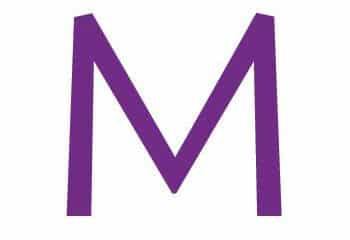Dr. Eran Lerman: The direction is to bring the Egyptians in, which will them resistant to Turkish blandishment, which seems to be increasing. Dr. Eytan Yanarocak: Erdogan is trying to mend the fences with Joe Biden.

By LAZAR BERMAN, The Times of Israel, 15.03.2021
In an eastern Mediterranean region full of rivalries, muscle-flexing and shifting alliances, Israel made strides recently in achieving energy security and cementing ties with partners to create a physical link with Europe.
Israel has been using energy diplomacy to help create a bloc to counter Turkish policies in the region, and last week signed deals to tighten a partnership with other countries similarly seeking to curb Ankara, while also navigating other regional rivalries that could pull apart the fledgling forum.
The East Mediterranean Gas Forum, or EMFG, which includes Israel, Egypt, Greece, Cyprus and the Palestinian Authority and is in the process of expanding, has become a de facto outgrowth of a regional split, which has seen Turkey and Qatar leading a pro-Islamist faction, and Egypt siding with Saudi Arabia and the UAE in a pro-Western camp that has increasingly included Israel.
Turkey, once a close security partner for Israel, took drastic strides in the opposite direction over the past decade under President Recep Tayyip Erdogan, who has emerged as a leading critic of Israel and supporter of the Hamas regime in Gaza.
It has also been engaged in a bitter rivalry with Egypt that began nearly a decade ago when Erdogan backed the Muslim Brotherhood after the group was ousted from power in Cairo.
In the Mediterranean, Egypt has aligned itself with Greece and Cyprus, longtime rivals who of Turkey that accuse it of illegally drilling for natural gas in their exclusive economic zones.
On March 8, Israel’s Energy Minister Yuval Steinitz signed a memorandum of understanding with his Cypriot and Greek counterparts agreeing to lay the world’s longest undersea power cable, linking their electricity grids and further solidifying their alliance.
Neither Israel nor Cyprus are linked to the electricity grids of neighbors and despite the gas finds, they are still largely dependent on imports for fuel to fire their power plants, leaving them vulnerable to supply cuts.
Michael Hariri, Israel’s former ambassador to Cyprus and a researcher at the Mitvim Institute, said the project was an important backup for Israel in times of emergency.
“In the longer term, a link like this, from Israel to Cyprus and Cyprus to Greece, then to Europe, is extremely significant for energy security. Also by the way, for Cyprus, which like us is an energy island,” he said.
Israel and Cyprus also agreed on a framework to resolve a longstanding dispute over the development of the Aphrodite-Yishai gas field. Most of the field — the Aphrodite section — sits within Cyprus’s exclusive economic zone, but the portion known as Yishai, which is about 10% of the field, sits in Israeli waters.
Hariri called the deal “complicated” given Turkey’s claim over the maritime border.
Turkey insists that its exclusive economic zone stretches across the entire Mediterranean, thanks to a maritime border deal with Libya that would essentially block Israel and Egypt’s access to Europe, potentially upending the EMFG’s plans.
A meeting later the same day also highlighted the competing interests embedded within the EMGF, when the PA blocked an attempt by the UAE to join the group.
The UAE and Palestinian Authority have been at odds for years, and have moved even further apart over the past years after the Emirates signed a normalization agreement with Israel. The sides are also at loggerheads over Mohammad Dahlan, a former Fatah strongman and rival to PA President Mahmoud Abbas, who has been in exile in the UAE since 2011.
According to an Israeli official, the member states urged the PA representative to abstain from the vote on whether to allow the UAE to join as an observer state, and expected him to do so, but instead he surprised them by vetoing the bid.
All decisions of the EMGF have to be ratified by consensus.
France will likely represent UAE interests in the EMGF. The two countries maintain close cooperation, including a high-level strategic dialogue. France maintains a series of military bases in the UAE.
The EMGF approved France joining as a full member and the US as an observer state.
A sea change for Turkey?
Steinitz made news last week when he mentioned during a press conference in Cyprus that Israel would be open to cooperating with Turkey on natural gas.
After years of aggressive policies and rhetoric from Ankara, Erdogan has projected a markedly different tone of late. In the face of increasing isolation and economic challenges, in recent months Turkey has signaled a desire to turn a new page in its relations with Israel, the EU, Greece and Egypt.
An Israeli official tried to downplay the statement in a conversation with The Times of Israel, saying Steinitz was responding to a question, and that Jerusalem has always been open to cooperating with Turkey if it changes its adversarial stance toward Israel and its partners.
“There’s always been language in the EMGF and the trilateral agreements saying this is not a closed club, and that we are willing to be open to all like-minded nations under the assumption they will act as like-minded nations. Which, as we all know, the Turks have not really done,” explained Eran Lerman, vice president of the Jerusalem Institute for Strategy and Security.
“I don’t think there’s much hiding behind the statement,” Harari concurred.
Statements from Ankara won’t be enough to make Israel and the EMGF cooperate with Turkey on Mediterranean energy exploration. If Ankara continues to insist on maintaining a 2019 maritime border deal with Libya that claims economic rights over areas that Greece and Cyprus see as their exclusive economic zones, the forum will continue to treat Turkey as an adversary. Greece says the Turkey-Libya deal fails to take into account the island of Crete, while Turkey has already upset Cyprus by sending ships to search for oil and gas off the divided island.
“The ultimate question is will the Turks be open to a renegotiation of the [exclusive economic zone] delineation agreement that it drew up with the Sarraj government in Libya,” said Lerman, noting Libya’s moves toward a new government and Ankara’s changing attitude.
On March 10, Libya’s parliament approved a unity government as a step toward national elections in December. The north African country has been embroiled in civil war since dictator Muammar Gaddafi was deposed in 2011.
Ankara will have to change its approach toward natural gas exploration in the eastern Mediterranean first, said Lerman. “As long as they hold the position that Cyprus and Egypt have no access to Europe without Turkish permission, then we are going nowhere.”
This outcome has become more plausible with the election of Joe Biden as US president. Biden and Erdogan have a history of personal acrimony, and many observers believe the new tone coming out of Ankara is an attempt to shield Turkey from US pressure on human rights and its policies in the region.
“The current shift in Turkish foreign policy derives from the fact that there is new leadership in Washington,” said Hay Eytan Cohen Yanarocak, a Turkey scholar at the Jerusalem Institute for Strategy and Security. “Erdogan is trying to mend the fences with Joe Biden. In order to do that, he launched a new rapprochement not only with the United States, but also with the United States’ allies, meaning Israel and the European Union.”
Israel’s focus in the EMGF seems to be on tightening its energy cooperation with Egypt, Turkey’s major regional rival. In February, Steinitz and Egypt’s energy minister Tarek el-Molla agreed to build a gas pipeline from Israel’s offshore eastern Mediterranean Leviathan field to liquefication facilities in Egypt, aimed at boosting exports to Europe.
Israel began pumping gas from Leviathan in December 2019 and exporting to Egypt the following month. The field, discovered 130 kilometers (81 miles) west of the Mediterranean port city Haifa in 2010, is estimated to hold 535 billion cubic meters (18.9 trillion cubic feet) of natural gas, along with 34.1 million barrels of condensate.
US-based Noble and Israel’s Delek, the consortium leading the development of the Leviathan and the smaller Tamar field, struck a $15 billion 10-year deal last year with Egypt’s Dolphinus to supply 64 billion cubic meters (2.26 trillion cubic feet).
The deal was announced as Molla visited Israel, where he also met Prime Minister Benjamin Netanyahu and Foreign Minister Gabi Ashkenazi as well as Steinitz.
The energy ministers and their teams met “in order to enlarge and to increase the cooperation in energy,” Molla said in a video released by Steinitz’s office.
Lerman said Israel’s ultimate goal was likely to make sure it could keep Egypt out of Turkey’s sphere of influence.
“I think the direction is to bring the Egyptians in, they will have an interest of their own,” said Lerman, “and which will also make them resistant to Turkish blandishment, which seems to be increasing nowadays.”






 - בניית אתרים
- בניית אתרים